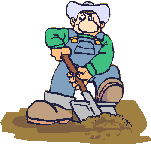Almost every writer likes to put the best content for the readers & a little pondering before putting their fingers on the keyboard can produce best results. Brainstorms, outlines, and research are all part of the planning and preparation steps that many writers work through before they sit down to actually string words together. But there are ten important questions that every writer must ask before creating that first draft & publishing it.
1. Knowing & attracting your Audience
Rather than focusing your topic you can focus your audience. This is a tradeoff between these two. You identify a motivated audience, cater your blog articles specifically to them, and then can select anything that interests you that will interest that audience too.
2. Decide on an identified, focused subject
Identifying the right key for the lock is the art of subject identification. Audiences love when you are ultra-specific in your blog goal and articulate it well. It works especially well when you identify a pressing need.
3. The Power of Titles
Any article is first identified by the title. The title should be appropriate & put the major idea of the content. The title has the ability make or break a blog post. It impacts how (and if) it’s found in search engines and social bookmarking sites, it influences whether people visit your blog in News Readers, it affects whether people leave a comment and is vital in whether people actually read what you have to say.
4. Good Images conveys it All
Image gives life to simple words on the paper & every image you use must say something related to the topic. This technique can be used for providing an additional point of interest in your posts. I do use images in every post on this blog but find that when I do that those clicking through on the post in my feed reader increases. Images have the power to communicate in ways that words cannot - use them.
5. Be Original & Creative
Try to speak your own words. Come up with your own content. It helps giving readers an assurance that they reading a fresh & new content. They have got something new. You can think something unique to say and say it in a creative and fresh way. Say what everyone else is saying in the same way that everyone else is saying it and you’re almost guaranteed of being largely ignored. Stick away from any type of copyright infringement.
6. The Presentation stands for 50% of all your work
Many times online readers tend to scan content & images on the website. As a result if you place visual cues in your posts that draw their eye to important points you’ll find people stick with you longer into your posts. Think like what you will like if you visit a website that is, think like the reader’s point of view & it will help you how to present the things more simply & beautifully.
7. Work on content organization & structure
A single well written list post can launch a blog to great heights in the blogosphere. While the prolific nature of lists in the blogosphere can also mean your lists get ignored, but listing the thing helps keep your article more organized. I find that when writing the same content as a list that you write as an essay like article the list will almost always get more attention. They easily caught the attention of eye & let readers to stick to the content until they catch the idea behind them.
8. Style of your writing
There can be some difference in the tone of your writing that could not match with what readers want. A fiction piece will have an altogether different tone than a well-researched article. The language you choose, and the styles in which you write are largely directed by your target readership. Always pick a up a tone & style that is simple, clear & understandable.
9. Publishing & Socializing on a Right Platform
Few pieces of writing are publishable across different formats. You should at least have a general idea of the final format; especially be aware of whether your piece is headed for print versus electronic publication. For choosing the right socializing platform for your article after publishing it, you need to think on the need & effect of the article content on the set of readers & audience. Once you understand that, socialize it across suitable platforms.
10. Impact of the Article
Almost every writer wants to make readers feel something. It is important to think the impact of your article on the readers. What do you want your readers to feel? Hope? Anger? Joy? Controversies? Is your article is imparting knowledge? Is it going to affect a specific set of people thinking? Writing informs, entertains, and sells. It intrigues, educates, and inspires. It’s imperative to know what impact your work will have on readers. Otherwise, it may end up having no impact at all. It is always to look up the results of what you are planning to do.
Do you Like this article?
If you like this post then please consider commenting & subscribing to Intelligent Moves RSS Feed.
You can also suscribe by email have articles sent directly to your inbox.




















































